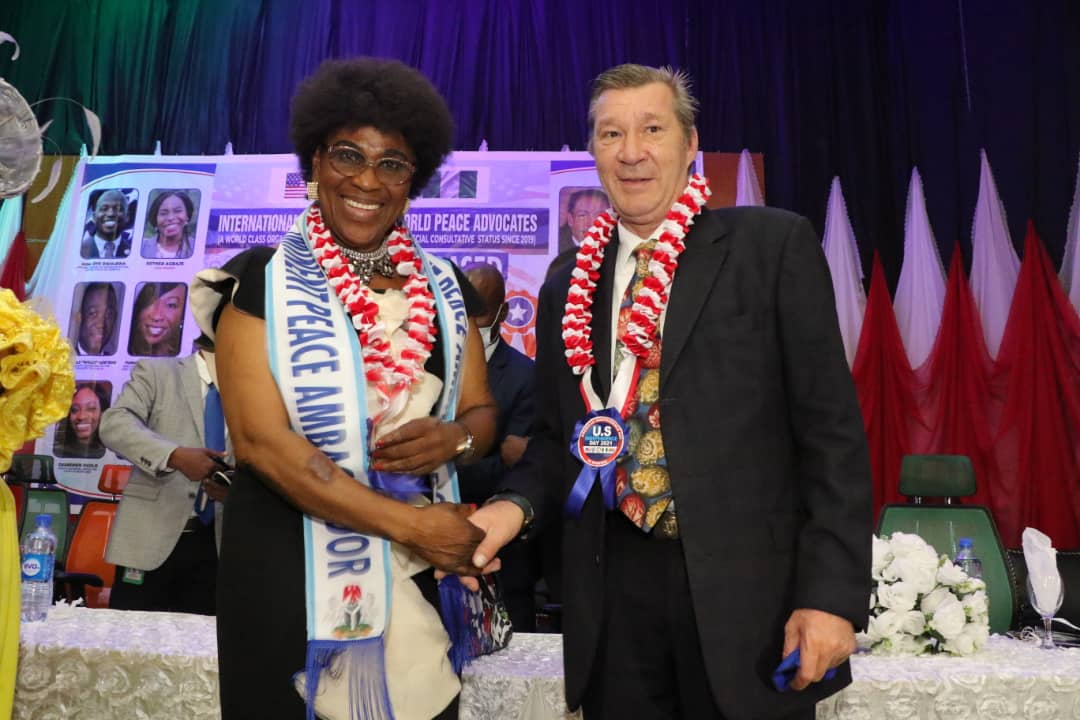Protocols
A BRIEF HISTORICAL ANTICEDENTS TO AMERICA’S INDEPENDENCE
The American Revolution—also the U.S. War of Independence—was fought between 1775 and 1783. It was through this war that, 13 of the British North American colonies threw off British rule to establish the sovereign United States of America—upon Declaration of Independence in 1776.
The war of independence was believed to have been caused by British attempts to assert greater control over colonial affairs especially the adherence to a policy of salutary neglect.
In American history, salutary neglect was the British Crown policy of avoiding strict enforcement of parliamentary laws, especially trade laws, as long as British colonies remained loyal to the government of, and contributed to the economic growth of their parent country.
Some historians have argued that it was a deliberate–though unwritten- policy. And that the then Prime Minister, Robert Walpole was content to ignore the illegal trade if the ultimate result was greater profits for Britain.
Others, however, argue that a greater cause of salutary neglect was due to incompetence and self-interest of unqualified colonial officials, who were cronies of Walpole.
But whatever the reasons were, America fought and detached itself from that unwholesome exploitative relationship, liberated itself, and became a sovereign nation in 1776.
Since then, America has remained the world symbol of liberty, of sovereignty and of freedom, for all people who are held in bondage by tyranny and by political and economic injustice.
AMERICAN INDEPENDENCE
Today, American Independence Day, also called Fourth of July in the United States, is the annual celebration of nationhood. It commemorates the passage of the Declaration of Independence. The vision of the founding fathers of America, placed above all other considerations, the full attainment of the fundamental freedom, equality and the rights of the citizens towards the full realization of common good.
Harvard historian, Alex Keyssar dates America’s rise on the international stage to the Spanish-American War at the end of the 19th century, followed by its intervention in the First World War.
America had to intervene again in the Second World War which, the historian observed as follows:
“The Second World War is the turning point; it’s when America becomes a superpower. By the end of the conflict, it’s clear that America has the strongest military force in the world, it has nuclear weapons technology, which no other country had at the time, and its economy is booming”.
I do not wish to veer into the billions of dollars which America channelled into the Marshall Plan to help rebuild Western Europe among others.
Ever since then, whenever America sneezes the world catches cold.
It may be instructive to note that America’s compelling need for world peace for instance, and of spreading the ideals that make for peace, has seen it defending powerless nations, promoting and protecting human rights of all people, regardless of race, color, place of birth, sexual orientation, language, religion, political persuasions and other opinions.
It does appear that the tonic for America’s role as a big brother in global affairs stemmed from an amiable chord of benevolent instinct, well summarized as both vision and thesis statement, and deeply enshrined in the Declaration of Independence, the Bill of Rights and in the Constitution, as sine qua non for shaping the consciousness of the world.
But what is more relevant here is that, although the international order which America has built and led may have not been perfect, but it has certainly served mankind especially in challenges of security and prosperity yet to be matched in the course of human history.
Many nations have in one way or another benefited from the investments which America has made and continued to make in global security and prosperity, including aids.
It may also be important to acknowledge the fact that America, in its strongest moments in history, had used its political advantage to try to create a benevolent world. One in which even other powers also acknowledged the predominance of America as being beneficial to people in the world.
But today, the value of America’s global engagement has come under attack by various interests, both internally and from external forces.
From externalities, some critics of America are viewing America’s benevolence with suspicion and apprehension, others are nursing resentment that too much freedom in America has become a serious course for concern in the sense that excessive use of right and freedom is tampering with the essence of God’s creation of man and undermining the course of nature. Yet some further argue that American way of life is diminishing their culture and tradition.
There is also subtle and overt political campaign and conspiracy theories against America by other super powers in the struggle for supremacy.
Then from within America itself, a section of American nationals are feeling that the activities of the United States in other countries constitute a drain on the resources meant for their wellbeing.
For instance, a significant number of Americans claim that their lives and livelihoods have been threatened rather than enhanced, by their country’s involvement with other nations. They view the issue of immigrants to America as short-changing them and weakening their standard of living; they consider foreign aid support as misapplication of their tax revenue and even view globalization as destabilization of American culture.
This popular displeasure and grumbling need to be understood and acknowledged especially when viewed from the standpoint of the fact that many developing countries receiving assistance are not managing the resources well.
But then again, it is instructive to recognise that a significant number of humanists within America strongly believe in supporting friends and allies, because if peace prevails, there will be fewer refugees to contend with, there will be less pressure from asylum seekers, it will also contain the challenges of influx of terrorists from all corners as well as help in fighting organized crime.
By contributing to global health, it will be a lot easier to get rid of other problems like tackling the spread of infectious diseases, which can put the world in danger, including America, as infections move across national borders without visa.
This is particularly true of COVID 19 pandemic which particular origin is stills a subject of controversy. It started somewhere but spread the world over and from that alone, America had suffered great loss of human capital.
So, it is clear that America cannot just back out because the consequences of disengagement will still remain costly.
MULTILATERAL DIPLOMACY AND GLOBAL INCLUSIVENESS
No one, by any dint of imagination is assuming that America will be the one to shoulder the entire world responsibilities.
Rather, the point is that today’s global environment requires multilateral diplomacy as a potent tool with which to maintain international order and stability. No nation, no matter how powerful, can by its own efforts alone make itself totally secure against today’s threats.
America will definitely do much better, and save some resources, when other countries have the incentive and the capacity to work alongside it in tackling global challenges. This is true when considering a system of international institutions and security alliances. The vulnerable people of the world are looking up to America to provide a framework for advancing economic openness and political freedom in the present global circumstances.
America, as the custodian of world democracy has an obligation to defend those aspects of the international system that work in the twenty-first century.
In doing so, the Leadership should relate cordially and in collaboration with friends and allies who share the same values including belief in democracy, in justice and the rule of law as well as freedom of movement, and free enterprise system.
We also know, from recent experience, that if America recedes from the global stage, people in Africa, Asia, Latin America, and the Middle East will be constrained to look elsewhere for support and guidance and invariably, some may unwittingly fall into the enclave of extremist ideology. That again may put the entire world at risk.
It is obvious from events going on around the world that not all powerful nations proclaim the same passion, as America, to the philosophies and principles of freedom and justice. The world’s super powers mainly compete for military supremacy, for territory and spheres of influence at great human, financial and environmental cost. That definitely is not the type of world any of us want to exist in.
That is why vulnerable countries try to run to the canopy of America’s independence and democracy for shelter. From all we know about America’s revolution and the struggle that led to independence, it stands to reason that America more than any other sovereign nation understands better the underlying challenges of the developing regions of the world, and the best way to articulate a long-term strategy for confronting them.
WORLD PEACE IN THE FACE OF CRISIS AND VIOLENCE
The pursuit of World Peace is a collective responsibility. Peace is not always the absence of war. If it were, Africa could have been one of the most peaceful regions of the world. But then no region has seen more suffering, death and hunger than the regions of Africa and Asia. These have continued to precipitate crisis and unrest at every corner. The roots of this crisis lie in a long history of poor governance by the leadership of many of the countries in Africa and Asia.
There is no doubt that peaceful and stable environment is a pre-condition for healthy human existence. World Peace conjures a state of happiness, freedom, and tranquility within and among all people and nations on Planet Earth symbolizing the presence of equity, social and economic justice.
A lot has happened in the recent past where leaders sought to invalidate popular dissatisfaction and protests by force, the result in most cases was civil unrest and in some circumstances outright wars. This is not the world we want!
Whether it is the civil wars raging in the Middle East – in Syria, Iraq, Libya, and Yemen or the poverty, hunger and unemployment devastating the people in Africa and Asia – all have had destabilizing consequences for the various other regions and beyond.
Most often, it is the suffering and hunger arising from poverty and unemployment that tend to trigger restiveness and violence across the globe. They have created environments and grievances that have allowed different categories of terrorist groups to initiate and instigate attacks which are threatening not only the peace of the region but snuffing life out of all and sundry, while spreading fear and panic across the globe. Africa has had its fair share of these acrimonies. Circumstances such as this have created the greatest worldwide refugee crisis, internally displaced persons, hunger and devastating human and environmental costs. This is therefore making peace more and more elusive.
IMMEDIATE PRIORITIES
Most men and women of goodwill have always longed for egalitarian society.
There will be peace across the globe if we are able to overcome the threats to humanity’s survival, generated by exploitation, poverty, hunger, global warming, pollution, etc, Peace will be possible if we can conquer all narrow-mindedness– racism, intimidation, injustice etc
Can there be peace when the super powers of this world are spending half the world resources in creating nuclear weapons in the struggle for political and economic supremacy at the expense of human and environmental casualties?
But the question is, can we ever achieve world peace when the population of the extreme poor is increasing at exponential dimension?
The pursuit of world peace should start by mitigating the current human suffering. The future of global society and of world peace will depend to a high degree, on the political and economic development of inclusive society, led by America over which other democracies can lean upon.
Reducing violence, poverty and insecurity will matter most to the world’s poorest population who are the first victims in times of crisis. All these are impediments to world peace and its sustainability.
SUSTAINABLE DEVELOPMENT AND GROWING YOUTHFUL WORLD’S POPULATION
For some time now, the world has been filled with apprehension concerning the fate of future generation in the face of unemployment, dwindling resources, climate change, oil pollution, environmental degradation, carbon emission, water pollution and destruction of aquatic lives.
The youths of our generation have all gone berserk on a moral rampage due to excessive (lack) and uncertainty for the future. They neither understand morals nor respect ethics in their state of anger. Many are desperate. For them, the future is so bleak. There is therefore, a valid reason for apprehension.
The United Nations Sustainable Development goals hinges on the (5 Ps) of People, Planet, Prosperity, Peace and Partnership. The concern here has to do with economic justice that is taking into account the imperatives of meeting the economic and social needs of the present times and save some for those of the future generations, such as the preservation of the environment and other natural resources. The present circumstance should be of grave concern to world leaders.
So, Sustainable development pursues the idea that humanity must live to meet their needs without compromising the ability of subsequent future generations to meet their own needs. Specifically, it is a way of organizing society such that it can exist in the long term for the benefit of every generation. This generation must regulate over consumption and pursue stable economic growth.
These challenges and the other concerns of youthful population are more pressing in developing nations and needs to be addressed to determine the new shape of leadership, and how governments will interact with their people, assure them of the need for sustainable development initiatives, so that countries will be less prone to subversion, and also to mediate conflicts and completely prevent all-out war in the coming years due to lack and scarcity of especially natural resources.
Young people are becoming more and more restive and violence gets ignited at the slightest provocation.
The America’s influence should relate to helping the vulnerable nations to move from the current vicious cycle in which they find themselves, to a more honourable one. The young people need something more sustainable than ad-hoc type of aids and charity grants.
What is even more critical is addressing the root of the problems, because unless systematic steps are taken to resolve some of the raging and burning issues that directly affect human life, even if the groups making demands have to disappear today, tomorrow, others would spring up in their place as long as the underlying grievances that led to the crisis remain unresolved. This is principally the core ideology of sustainable development goals – People, planet, prosperity, peace and partnership.
WEAK NATIONS REQUIRE ENCOURAGEMENT AND SUPPORT TO CHART THEIR OWN VISION – NOT NECESSARILY CHARITY, NOT LOANS
Developing countries must be allowed to have a voice in global conversation.
In the spirit of liberty and democracy, America in its usual benevolence should stand by developing nations as they chart their own vision for the future. The African region for instance has significant capabilities and resources of its own to define and work toward this vision and secure better opportunities for its people. What is needed is guidance and direction, technological transfer not charity.
And more than ever, there are also indications that the new crop of young generations of Africa has the will to take on the region’s hard challenges. The region’s vast population of educated youth, often assumed to be a liability, are in fact tremendous assets, willing and ready to be guided. They need guidance; they need the technology to convert the abundant raw material in Africa.
I must acknowledge that already, few governments in Africa, for instance, are beginning to understand that their future depends on promoting these efforts and partnering with their people to build a common future.
I daresay that enhanced American leadership is still needed in developing countries. But not necessarily to impose America’s will on the people, rather, America may have a clear interest in supporting and accelerating the positive changes that are already happening and offer genuine advice and guidance. American leadership should for the sake of common good, help nations achieve a more peaceful vision. They can do it if they want. With this goal in mind, US foreign policy towards the developing world should be informed by a set of guiding principles that represent a reality for authentic freedom and peace.
The people of developing nations should assume the principal responsibility for defining the new order in their own terms, in line with their peculiar environmental circumstances which should offer the people of the region the prospect of a prosperous sustainable future free from both terrorist violence and government oppression.
NEED FOR COOPERATION AND SYSTEMATIC DEVELOPMENT
Rather than dictating on how countries should behave, or offering assistance on the basis of ‘quid pro quo’ America should, from their wealth of experience and hindsight, support and facilitate the positive efforts that people and governments in the poor countries are beginning to make. Allow people the freedom to shape their own communities.
Finally, no nation can build a better future without the active participation of the people—including women, youth, minorities, and even those displaced by conflict. If enabled and empowered, the people themselves can be the engines of job creation, and part of solutions to the region’s economic and social problems.
That, over time, will definitely, change the course of the vulnerable regions towards a more positive direction, to the benefit of the citizens.
It also means encouraging regional governments to facilitate these efforts, to invest in the education and empowerment of their people, and to address the societal, economic, and governance issues that are key to future peace. Governments also need to create the enabling environment for individuals to deploy fully their talents, whether as innovators, entrepreneurs, or just engaged citizens.
This means better and fairer legal and regulatory frameworks and also more inclusive, effective, transparent, and accountable governance more generally.
CONCLUSION
As Nigeria and many parts of the world rejoice with America in commemorating its independence day, American leadership is being looked upon to build a genuine and revitalized international social order for the 21st century, especially in the areas of advancing democracy, freedom, genuine development as well as promoting world peace.
The United States, in all expectations, is being looked upon to support those governments that are trying to create such an enabling environment, not necessarily as charity, but because it is a good investment of resources likely to yield returns on mutual security for all.
The complexity of contemporary peacekeeping environments requires strengthened partnerships with all stakeholders. Sustainable World Peace requires inclusiveness and partnership, respect for human persons and above all fairness and justice.
Other principles for driving peace include among other things: alleviating poverty and hunger, improvement in areas of health, education and living conditions of all people on earth; military disarmament by super powers and the total elimination of all biological, chemical, and nuclear weapons in the entire world.
To achieve is a collective responsibility, and everyone has a role to play. Be it in family, neighbourhood, or society at large, because in times of crisis, we are all at risk.
Let us pray that one day; all the wars will stop permanently to pave way for egalitarian society.
Therefore, let us all, collectively and individually from time to time, have moments of introspection wherein we should all interrogate our sense of sense of humanity, our roles and responsibilities in the pursuit of peace.
Thank you for listening.
Professor May Ifeoma Nwoye




